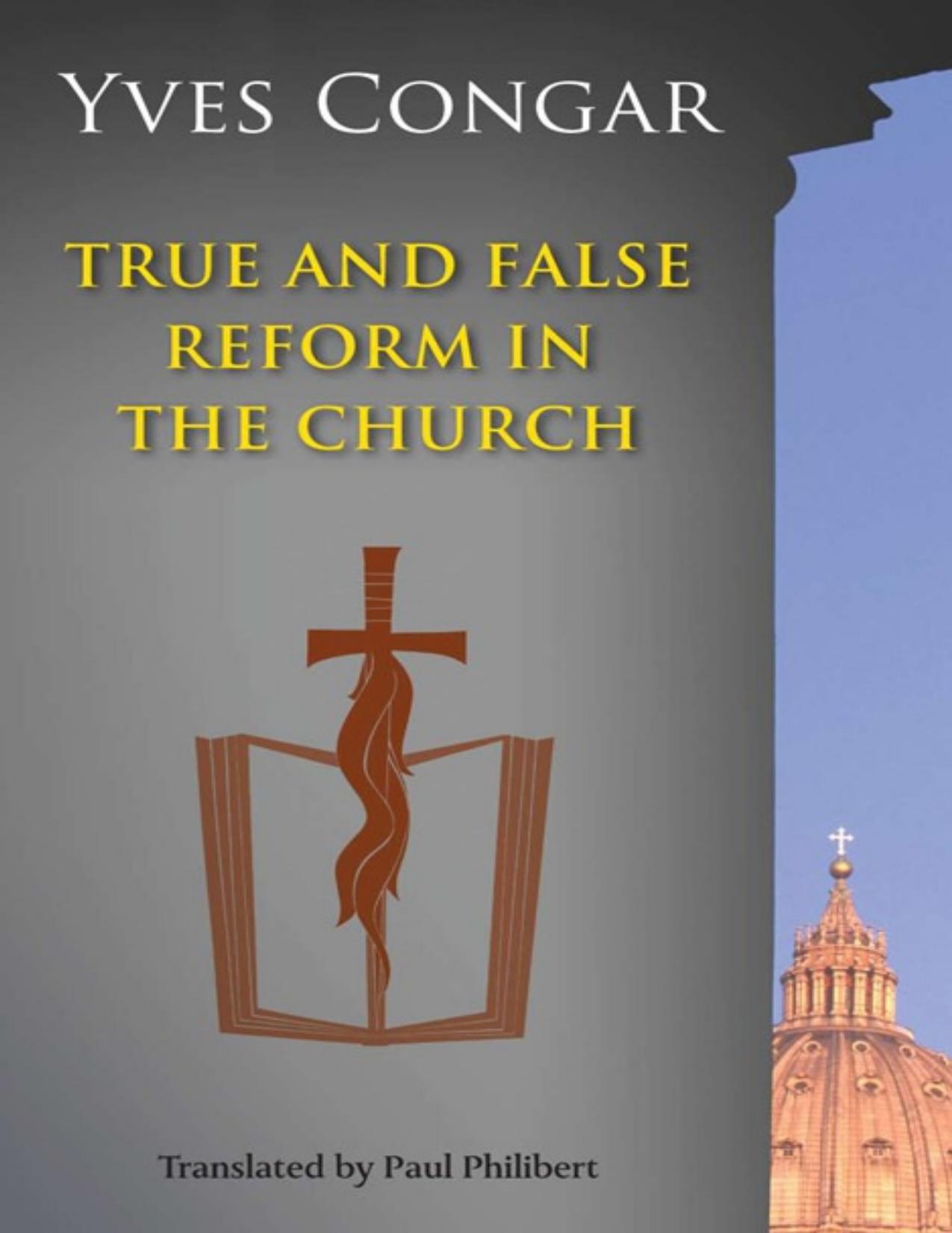True and False Reform in the Church by Yves Congar

Author:Yves Congar
Language: eng
Format: epub, pdf
ISBN: 978-0-8146-8009-4
Publisher: Liturgical Press
Published: 2010-03-16T16:00:00+00:00
2. A Knowledge or Mission Related to Executing God’s Plan
The Bible and above all the Old Testament (most of it) gives us an understanding of what God has done and what God wants to be for us, the understanding of God as the source of grace. Since all knowledge of God must be in some way distant and prophetic so long as we don’t see as we are seen, then every knowledge or mission relative to the development of God’s proposal of grace likewise has some element of the prophetic. When God’s purpose will be fulfilled, when God will be “all in all,” then prophecy will cease (1 Cor 13:8). We should recall here what has been said about God’s plan as development and about the way in which we still need to await its fulfillment in the church, as well as about the way the development of the world has implications for the church.
Everything is at the service of God’s plan: [human] sanctity, secular activities, even sin. However, certain activities are more particularly sustained by God so as to make us see everything in terms of serving God’s plan and promoting its development. In this sense we can talk about a permanent charism of prophecy in the church.38 This perspective also helps us to contextualize the mission of reformers when they face the temptation that risks turning the church into a “Synagogue.” Everything said above about that topic fits here. This is one way in which the activities of reformers and prophets are related.
In this respect the prophetic function aims to reveal the meaning of time and of the initiatives and movements that arise in history (principally from the point of view of God and God’s plan). Churchmen have sometimes failed to fulfill this function. Because of this, a positive understanding of the dynamic nature of time and, above all, a fundamental openness to its development often have been found only among the avant-garde or among reformers working at the frontiers. In certain periods, like that of the Reformation, for example, there has been a painful lack of “prophets,” people who genuinely understand the meaning of the events around them. However, in other ways, the church has manifested a truly prophetic, even clairvoyant understanding of events, ideas, and new initiatives, and of the spiritual meaning of ideologies. The church has often exercised a true charism of discernment of spirits. That has been the contribution of the saints,39 and it has been above all, in an outstanding way, the contribution of the hierarchy as a magisterial authority.
This has also been the contribution of the Christian faithful, in a way that is less certain but extraordinarily efficacious. God has used the gifts of the faithful to manifest to his people the secret destiny of their times, the meaning of what is going on in the world, clear ideas to guide clear thinking. In giving a few examples, I risk being rather subjective. However, can’t we agree on such names as Ozanam,
Download
True and False Reform in the Church by Yves Congar.pdf
This site does not store any files on its server. We only index and link to content provided by other sites. Please contact the content providers to delete copyright contents if any and email us, we'll remove relevant links or contents immediately.
Resisting Happiness by Matthew Kelly(2896)
The Social Psychology of Inequality by Unknown(2328)
Designing Your Life by Bill Burnett(2290)
Day by Elie Wiesel(2255)
The Giving Tree by Shel Silverstein(1849)
Angels of God: The Bible, the Church and the Heavenly Hosts by Mike Aquilina(1635)
Human Design by Chetan Parkyn(1585)
Augustine: Conversions to Confessions by Robin Lane Fox(1478)
The Supreme Gift by Paulo Coelho(1456)
Hostage to the Devil by Malachi Martin(1406)
7 Secrets of Divine Mercy by Vinny Flynn(1399)
Jesus of Nazareth by Joseph Ratzinger(1392)
Dark Mysteries of the Vatican by H. Paul Jeffers(1352)
The Vatican Pimpernel by Brian Fleming(1346)
St. Thomas Aquinas by G. K. Chesterton(1322)
Saints & Angels by Doreen Virtue(1315)
My Daily Catholic Bible, NABRE by Thigpen Edited by Dr. Paul(1213)
Called to Life by Jacques Philippe(1208)
The Ratline by Philippe Sands(1174)
